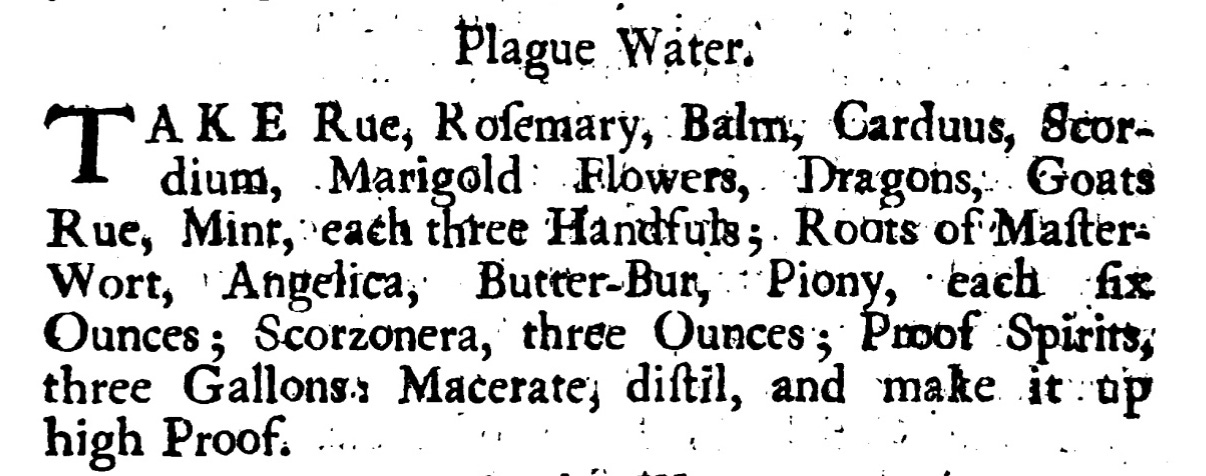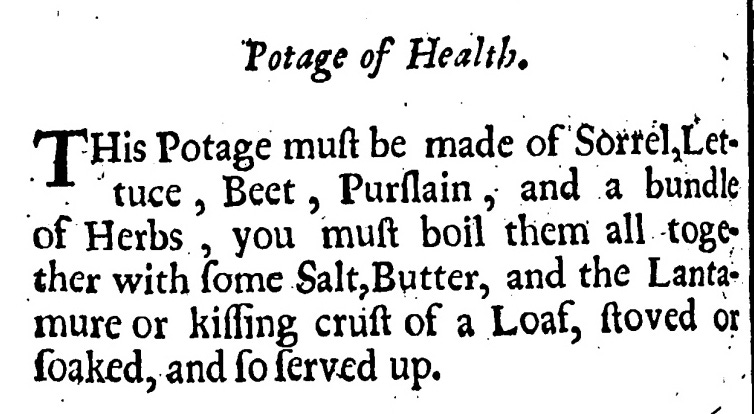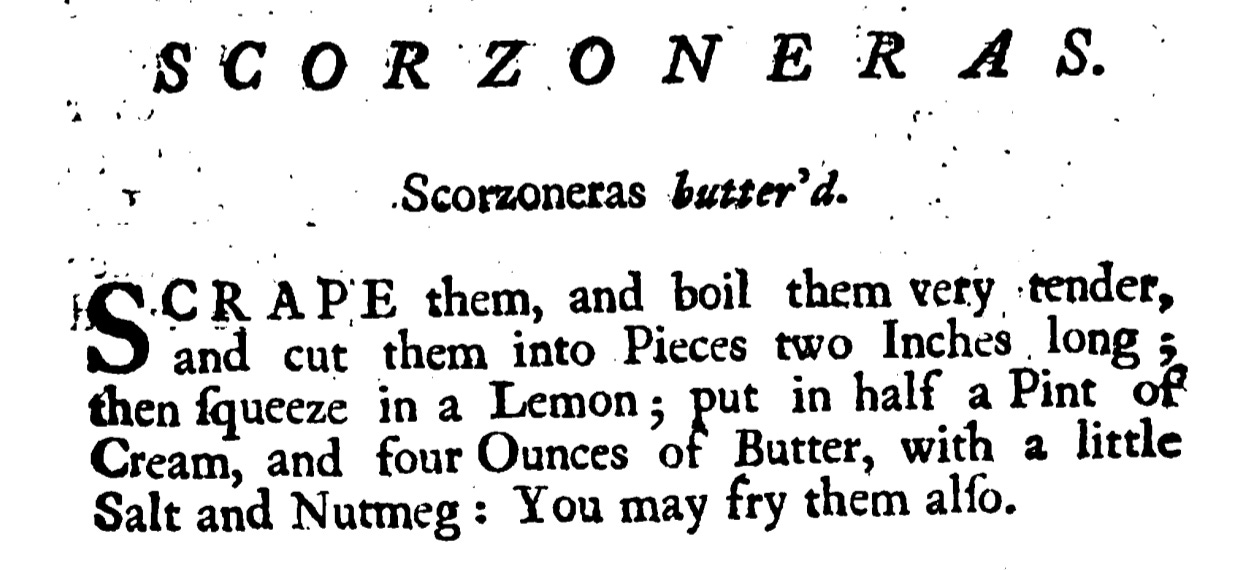From Oyster Grottoes to Scorzoneras
Via Apple Harvest Blessings, Random Meat Pies, A Golden Apple, Jealous Brothers, Dragons, Plague Water & A Potage of Health
Dearest Gentle Reader,
I hope all has been well with you and yours since last I wrote. This will be my last note until 29 August as I am taking a month off, partly to take a break and a rest and partly to research lots of exciting things to talk to you about and to work on projects around the podcast’s third birthday. I have the most exciting book to read and then talk to its creators around the simply gorgeous food and folklore which I will then be sharing with you and some other different but equally fabulous surprises.
As a result of my planning, I don’t really have any thoughts of my own to share with you but I do have some interesting folklore, recipes and a wonderful Bulgarian folk tale to share so hopefully that will be enough to remember me by until the dog days of summer have passed and I return.
Did you know, gentle reader, that today is the feast day of St James? If you wish for his story I’m afraid there are people more qualified than I to share the tales of the saints, suffice it to say that his symbol is the cockleshell and shellfish are also associated very strongly with his day. In fact it was once said that if you ate oysters on St James’s Day you would never lack for money. The street boys of London also built grottoes of oyster and cockleshells on this day, and held out the largest one they could find to beg pence from passers-by.
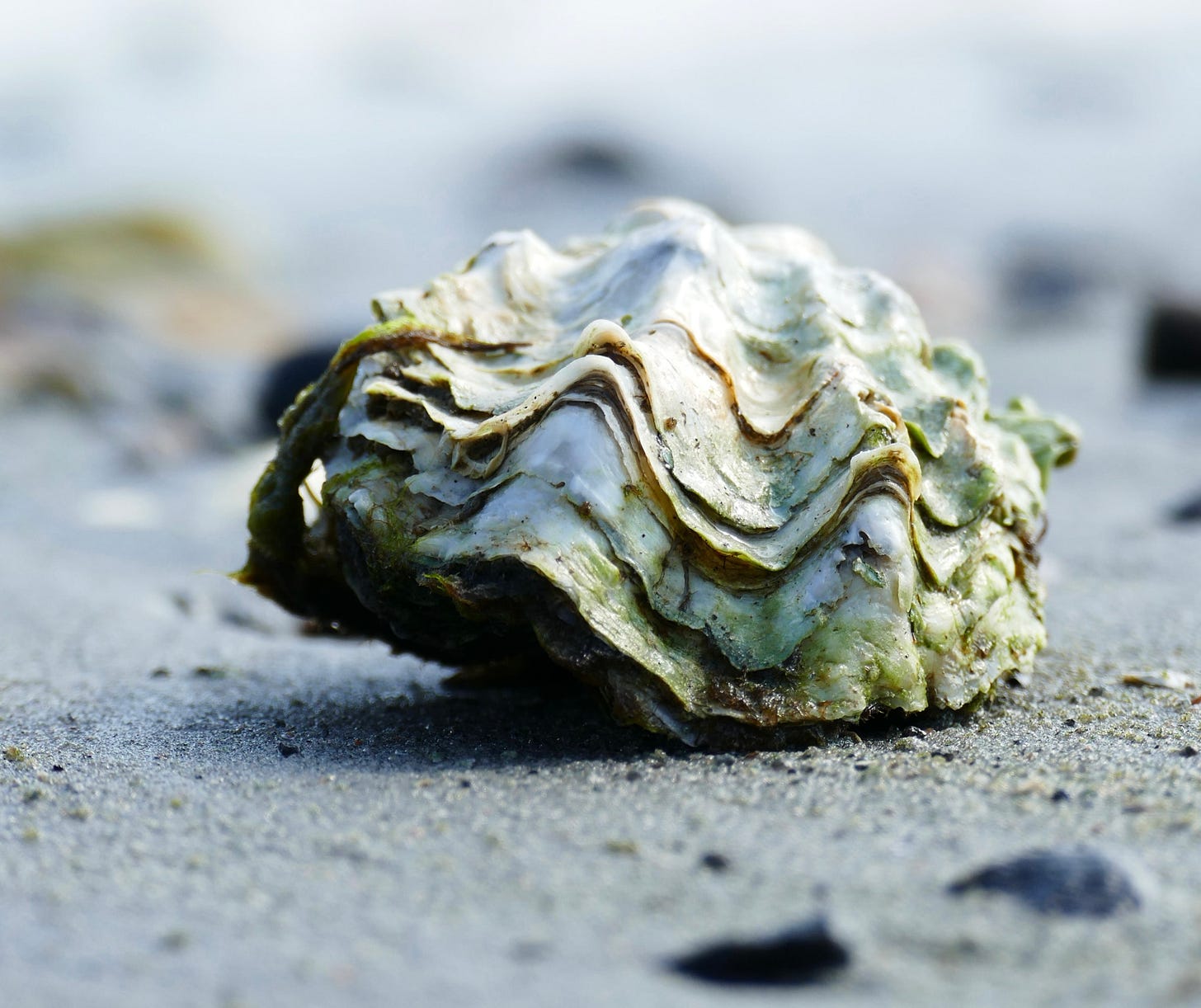
This is connected to the fact that in England, the start of the Oyster season was celebrated on this day. Well not exactly this day, I may have mentioned previously about the lost 11 days of 1752 where the UK moved to join most of the rest of Europe in the Gregorian Calendar (only 170 years after everyone else) This meant that various things had to happen including a 282 day in 1751 (25 March to 31 December) and then 1752 started on 1 January to sort out the fact that the old calendar and new calendar did not start the New Year at the same time. The lost 11 days were to bring us in line with the rest of Europe who had been using the new calendar since 1582 in some cases. This meant that old St James Day was actually 5 August which fitted much better with the start of the new oyster harvest.
St James Day was also associated with another tradition, that of blessing the apple harvest. No-one now knows whether blessing the trees came from the church wanting to honour the natural cycles of the countryside or whether it was a hangover to pagan tradition which was co-opted or a mixture of both. Whatever the source, the day was celebrated in many counties with customs aimed at increasing the apple crop. Prayers or verses were said in the orchards and the trees were sprinkled with holy water. In Sussex men performed the ceremony of ‘blowing the trees’. In this ceremony Cows’ horns were blown under the apple trees and each man took hold of a tree and recited verses.
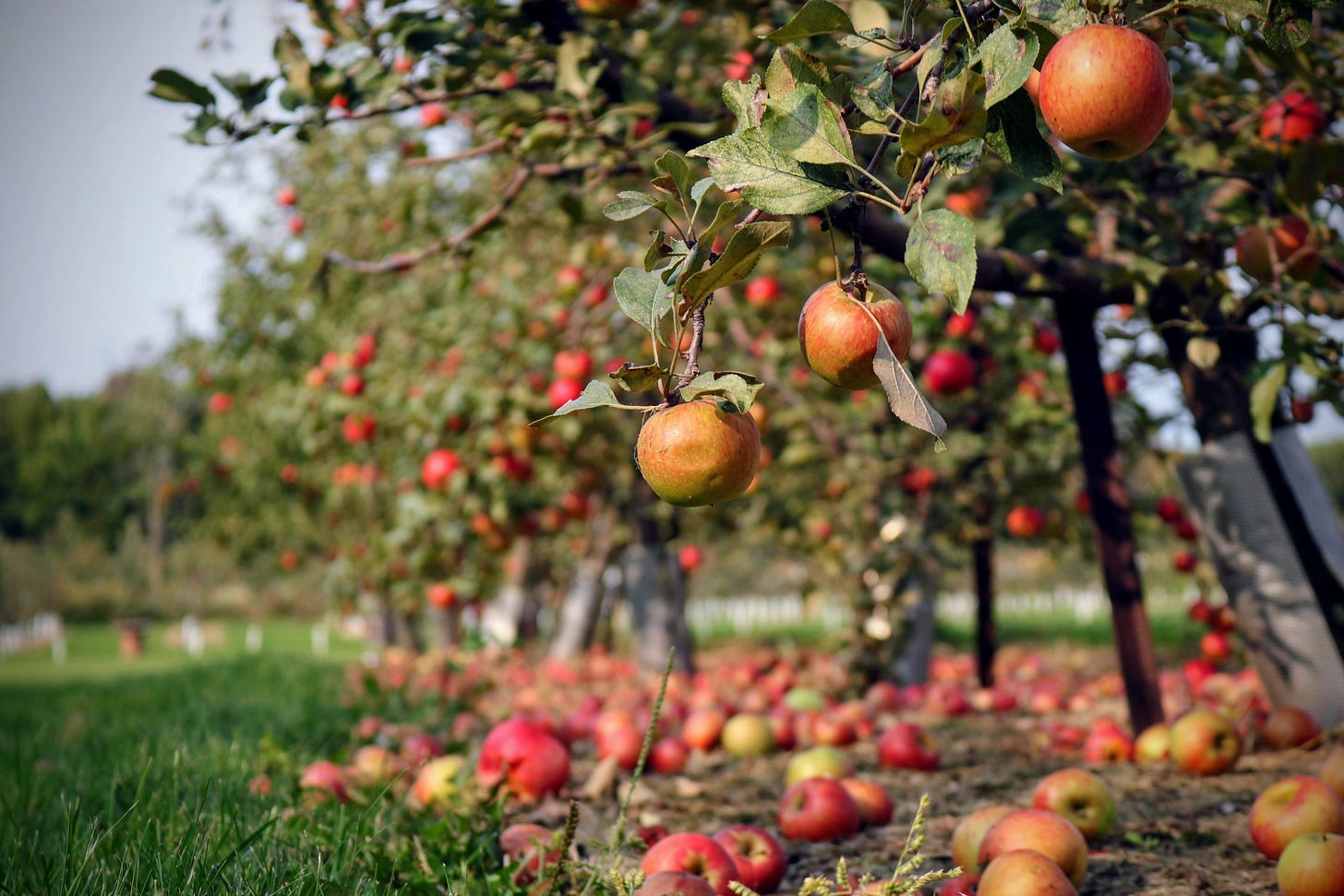
Apples weren’t the only crop with a connection to St James. It was also considered a milestone for hop growers. There is an old saying concerning the likelihood of a crop:”Till St James’s Day is past and gone, There may be hops, or there may be none.” which is a fairly fatalistic way of looking at it but that’s farming I suppose.
In a completely unrelated piece of folklore, it was the tradition for the rector of the parish of Cliff in Kent to distribute a mutton or beef pie and a loaf to however many people demanded this bounty. No-one seems to know why but I couldn’t resist mentioning it as I don’t believe there is enough random donation of pies anymore and the world is a sadder place for it.
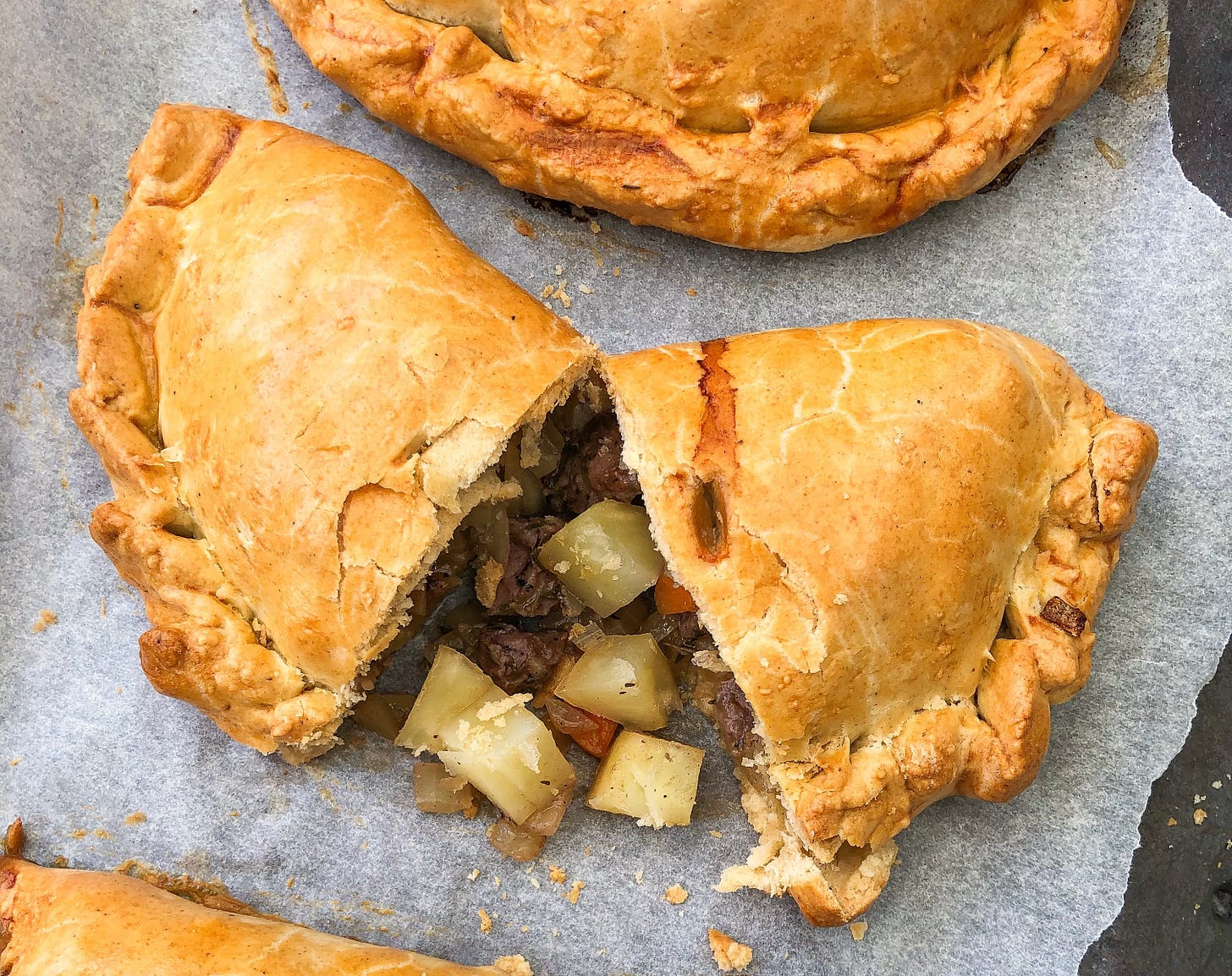
This is apparently an updated recipe for one of the actual pies distributed:
Steak and Kidney Pie
1-1/2 lbs. round steak 3 cups stock 3/4 lb. veal kidney 1 tablespoon Worcester- 3 tablespoons butter shire sauce 1-1/2 cups chopped onion salt and pepper piecrust
Cut the steak into 1-1/2-inch cubes and slice the kidneys. Melt the butter and brown the onion lightly. Add the steak and stir well until all sides are browned. Add the stock (or 3 cups boiling water with 3 bouillon cubes), cover, and allow to simmer for about one and a half hours. Then add the kidneys and cook an additional twenty minutes. Season with Worcestershire sauce, salt, and pepper. Place in a baking dish, cover with piecrust, making a slit for steam to escape, and bake at 450 degrees F. for about twenty to twenty-five minutes or until crust is done.
I haven’t tried it. I try and eat lots of different things but I’m not a fan of kidneys so I don’t want to, even for you Gentle Reader. I got this from a Catholic cookbook: Feast Day Cookbook by Katherine Burton & Helmut Ripperger from 1951 so I have to trust that this really is one of the old recipes!
25 July was also considered a milestone for hop growers. There is an old saying concerning the likelihood of a crop: “ Till St James’s Day is past and gone, There may be hops, or there may be none.”
Our tale, as is fitting, is also about apples, or one annual golden apple specifically from Bulgaria (there aren’t many tales about hops and oysters) - The Three Brothers and the Golden Apple
There was a woman with three sons. Although they were poor, they had one treasure: in their little yard grew a most wondrous apple tree. Every year, it bore but a single fruit – an apple of the purest gold. However, the family had never had the joy of picking the tree’s gift, as every year a dragon would swoop down and steal the apple just as it bloomed.
The sons watched this repeat year after year, their anger growing at the dragon’s insolence. Finally, the eldest son decided to try and stop the monster. On the eve the apple was to bloom he went to his mother and said,
“Mother, give me a knife and a bag of walnuts. I am going to guard the apple.”
His mother begged him to be careful, but gave him the knife and walnuts. He took them and went to sit underneath the tree, eyes trained on the horizon.
Night fell. The hours passed with not a sight of the dragon. The eldest son’s eyes began closing despite his efforts to keep awake by eating the walnuts and soon, he was fast asleep. When he awoke the next morning, the apple was gone. He went back to his mother, shame-faced.
The next year, the second son decided to try his hand at stopping the dragon. He, too, asked for a knife and a bag of walnuts. This time, however, he climbed the tree and waited for the dragon there, knife at the ready. Unfortunately, it was no natural sleep that had fallen his brother and he, too, woke to an empty tree.
On the third year, the third son went up to his mother and said, “Mother, give me the knife to guard the apple.” As he was her youngest, the mother was hesitant to let him near the tree, but finally relented to his determination. The older brothers, ashamed at their failures the years past, mocked him as he went to sit in the tree: “You better come back inside! If we could not catch the monster, you might well die, puny that you are!”
The youngest did not answer. Like his second brother, he climbed the tree and trained his eyes on the branch that was to bear the golden apple.
As the hour of the apple’s bloom grew near, weariness began weighting the boy’s eyes. Realizing it was likely one of the dragon’s tricks, the boy made a shallow cut into his arm. The pain cleared his mind and he was wide-awake as the dragon swooped into their yard, monstrous form wrapped in wind and dust. Not expecting the boy to be awake, the dragon stretched its muzzle towards the apple without paying the human much heed. This was to the youngest son’s advantage and he slid the knife into the dragon’s neck, dealing an almost-mortal wound. He then hid within the tree’s foliage and out of the enraged monster’s sight.
Hurt and confused, the dragon roared and fell back. The winds fell away as its power waned and, with a final angry look at the golden apple weighting the tree’s branch, the monster took off into the skies. The third son watched it go, then quickly grabbed the apple and brought it to his mother. The two older sons grudgingly admitted their brother’s bravery.
However, the dragon had not yet been defeated; it would likely come back next year, if not sooner, and do more damage than simply steal their apple. Thus, the youngest son urged his brothers to go and look for the creature and kill it while it was still weak. They agreed and set out that very day.
The three brothers walked and walked, overturn tree and stone in search for the dragon. Finally, they stumbled across a great hole in the ground – a hole large enough to let a monster through.
“Lower me into the hole,” said the oldest brother, “And I will look for the dragon.”
The brothers grabbed some rope, tied it around him and lowered the eldest in. The hole was deep and dark, however, and the brother got scared halfway down. He shook the rope until they pulled him back out.
“Let me try,” said the second brother. They tied the rope about him and began lowering him in. However, the strange creaks and sounds echoing from the darkness frightened him and he shook the rope and was also pulled up.
“I will go,” said the third brother. “If I shake the rope, keep lowering me. If I shake the rope again, lower me in until I reach the bottom.”
The brothers did as the youngest told them. They kept lowering and lowering the rope, and when it shook, they lowered some more.
Finally, the youngest’ feet touched solid ground. He quickly untied the rope from himself and began exploring the cave, seeking the wounded dragon. After walking for a time, he came upon a house – an enormous, stone-build cavern. From within it shone light. Stealthily, he made his way closer and peeked in through the windows.
Inside, three beautiful girls with golden hair played with various golden trinkets. The oldest and the middle girl each held a golden apple in their laps. The smallest had no apple, but played with a golden mouse and sack instead.
“Maidens, let me in!” whispered the youngest son. At first, no one answered him, but as he made to call again the oldest girl looked up from her play.
“Go away, stranger. Each year on this day, mother comes back with a golden apple for one of us. This year, she returned empty-handed and sick. If you come in, she will eat you.”
“I am not afraid of her,” insisted the boy. “Let me in, or I will break the glass and enter through the window! Don’t you want to be set free from here?”
The elder daughters did not dare get up. After listening to him rattling the glass, the youngest stood up and silently opened the door for him. Without wasting any time, the youngest brother found the room in which the dragon rested. Blood pooled from the monster’s muzzle onto the floor, and it was easy to finish the job before it got its bearing.
He then let the three maidens out of the house and to the rope, still hanging in expectation of his return. “Come,” he said to the oldest daughter. Her hair was a deep gold, her eyes dark. She was lovelier than the Sun. He tied the rope about her waist and shook it, letting his brothers pull her out.
A little while after, the rope fell down again. The youngest brother motioned to the second daughter. She was even lovelier than her sister, her hair long and soft, her face glowing with warmth. He secured the rope about her and let his brothers pull her up.
The rope fell down for the third time. The youngest sister stepped up – the prettiest, the gentlest of them all, her hair pale as moonlight, her face soft and round. The third son sighed, “If I have you go ahead of me, my brothers will fight over you and leave me. If I leave before you, would you want to follow after? No, I will send you first; if my brothers love me, they will pull me up.” He tied the rope about her.
“Here,” said the maiden, taking a hold of his hand, “Take this ring. If your brothers fight over me, I will tell them that I will choose only the one who can give me clothes that make themselves. As for you, if your brothers do not pull you up, you will soon fall deeper in. Under this world graze two bulls – one white, one black. If you fall on the white one, it will take you up to the world above. If you happen to fall on the black one, however, it will take you to the worlds below.”
The youngest son nodded, then shook the rope. He watched as the girl was pulled up and up, finally out of sight.
The rope did not fall again.
Suddenly, the earth began to shake, rumble, finally breaking into two. The youth fell amongst debris and dust, unable to tell what was up and what was down. When he could see again, he found himself on a broad back of a monstrous bull – onto fur of the darkest black. Before he could try and move, the bull launched down, powerful feet sending whole boulders flying. He could only watch as the white bull, heading upwards, disappeared from sight.
The black bull ran through many lands, through nine whole worlds, through nine kingdoms into the tenth. There the bull shook the youth off and disappeared, hurrying to the lush fields of the world he had left.
The young man stood up and looked around. Gray huts and barren gardens stretched as far as the eye could see. Most of them seemed deserted, but one glowed softly with the warmth of a fire. Quickly, he walked to it, peeking in through the dirty window.
An old woman sat by a dusty table, kneading dough for bread. Every once in a while she would pause, spit onto the dough, then continue kneading. The brother, amazed at such strange method, could not contain himself and spoke,
“Grandmother, don’t you think the bread will taste better if you use water instead of spit?”
The woman paused in her work, lifting a gray head. Seeing the brother she sighed sadly.
“Ah, boy, do you think I don’t know that? But there is no water in this land, not a drop. Even for the King himself!”
“You do not have water in this world?” the brother asked. The woman shook her head.
“We did. We did, but five years ago a dragon appeared. It stole our water, dammed it all up in the mountains yonder. Now it demands a maiden for a sacrifice each time it is to let us have some of it, or we die of thirst.” big, bitter tears rolled down the woman’s wrinkled face and onto the dough. “Three daughters I had, my boy. None left now. All of them eaten by that monster for a pittance of water.”
The brother said nothing, anger burning in him at the old woman’s words.
“Tomorrow, the King’s daughter is to be sacrificed to the beast. Her father is beside himself with grief, but the people are dying, are ready to revolt,” she laughs sadly, “Why our daughters, but not his they say. Poor girl.”
“Why has no one slain the monster?” The youth asked.
“Oh, they tried. Hundreds of brave knights made their way up that forsaken mountain, none to return. No one dares anymore. The King has promised a tremendous reward for anyone willing to protect his daughter; not one man has come forth.”
At the mention of the reward, the young man thought: If I save his daughter, the King will be obliged to help me return home.
“Grandma, point me the way to the palace. I will slay the dragon.”
“Are you that ready to die?!” cried the old woman in dismay, “No, son, stay here where it is safe. Whatever the reward, it is not worth your life!”
“I cannot, grandma. If you do not show me the way, I will find it on my own.” Mind set, he readied to leave. The old woman wrung her hands nervously, but relented, tears once more filling her eyes.
“Wait! Do not go hungry. Wait but an hour, and I will feed you some bread – bread baked with tears. Then, I will bring you to the palace myself.”
The old woman kept her promise. After feeding the young man, she brought him to the castle’s gates themselves. Over and over she pleaded with him to forget his foolish quest and come back with her, but he did not listen. Finally, she had no choice but to leave him to his fate, already mourning his sad future.
But the youth had not yet known defeat, and thus strode proudly into the King’s hall. After introducing himself and stating his purpose, he asked the King if he would be willing to send him home, were he to be successful in slaying the monster.
“I will give you anything you want,” promised the King, “Save us, and I will make you richer than you could have ever dreamed to be!”
“Thank you, but I only want to return home,” answered the young man. The King quickly agreed to that humble request, then sent him away to prepare – quick, lest the lad changed his mind.
Night fell. The time for sacrifice grew near and the King’s daughter exited the castle, alone – the King could not bear to watch her go and had shut himself inside instead, weeping for his girl. A crowd had gathered in front of the palace, watching the Princess’ form as she climbed the thin trail leading into the heart of the mountains. Some were sad, other angry, and quite a few simply wanted to make sure she did not run and deny them the water that they so needed to survive.
None, however, saw the shadow that trailed in the Princess’ wake. The youngest son’s steps were silent; he did not speak, least someone became aware of his presence. As they climbed higher and higher into the mountain, he slowly caught up with the King’s daughter, finally walking step in step.
“Tell me, Princess – what kind of monster is it?”
The girl looked at him, eyes wide in fear, “A terrible beast. It has three heads, each one deadlier than the last, and a body larger than a castle. There is no way to defeat it, brave knight. Many others have tried.”
“I am not a knight,” answered the youth with a smile, “And the monster will die if its heads are slain, just as anything else.”
The Princess nodded, but did not speak. They were too near already, and she was shaking with fright. The young man led her into the clearing that was the peak of the mountain, helped her sit against a smooth-faced boulder.
They waited and waited, but there was no sight of the dragon. The young man felt sleep steal over him, and could barely keep his head up. “It’s alright,” said the Princes, “Lay your head in my lap and sleep. I will wake you when the dragon comes.”
The youth did so. It seemed he was asleep for but a blink, as soon he felt the earth tremble under the monster’s might. The Princess did not need urge him awake; he jumped up, sword at the ready, and hid behind the boulder against which the girl rested.
The dragon was truly a terrible sight. Enormous and dark as the night, its wings blackened the skies in their closeness. Atop the powerful body three long necks moved to and forth, deadly fangs glinting in blood red mouths. Malicious golden eyes focused on the Princess and one head immediately darted at her, like a snake snapping its jaws around a helpless rabbit.
Before it could as much as touch her, however, a glint of steel separated it from its body.
The dragon roared, blood gushing from the limp stump as the other two heads twisted and turned in pain. The young man stood in full sight now, blade drawn, and the monster let out another roar as it launched towards him.
Instead of running, however, the youth rolled underneath the grasping jaws and grabbed one of the dragons’ necks, quickly climbing on top of an ugly head. He then slid to the base of the enormous body and severed a second head, the dead thing rolling into the dirt with a sickly thud.
One head remained. It twisted backwards and bit at its own self trying to get at the nimble human. The young man found himself near death several times, with nowhere to run and the ground many meters below. One final lunge, and he would have been dead – had not the Princess let out a scream of a terrific tone. The dragon, confused by the sudden noise, turned to look at her – her pale face was the last thing it saw, for the youth took that precious chance to slay the final head off the dragon’s shoulders.
As soon as the tremendous body thundered, lifeless, against the ground, the whole mountain shook with amazing power. The magic keeping streams and rivers dammed within the earth broke in that instant and the sound of water, strong and joyful, filled the night.
“It is done,” said the young man, and led the Princess back home.
The King was beside himself with happiness. He proclaimed the young man a hero, paraded him as the nation’s savior in front of a grateful kingdom. However, the youth had no desire for such things; as soon as he could, he reminded the King of his promise.
“Leave?” asked the King, laughing, “Why would you want to leave? I plan to give you my daughter’s hand, to make you a King in my wake! Surely that is enough reason to stay?”
“No,” the youth shook his head, resolute. “I must return home. I have a mother and brothers waiting for me there.”
After much back-and-forth, the King finally admitted,
“I do not know how to return you to the world above. No human has ever gone, and no beast will be willing to take you.”
“Let me try,” said the youth, “Point me to one that can make the journey.”
The King then told him of a nest in a certain tree not far from here – a nest of an enormous Eagle. “She is the only one strong enough to take you back. I shall cover any due she may demand, if she agrees to carry you up.”
The young man set out to find the tree bearing the nest of a monstrous eagle. It was not too difficult a task; the field in which the tree grew could not host anything by the massive plant. Its branches seemed to reach the skies, yet appeared but twigs in comparison of the heavy nest it bore. There lay three little eagles, each one as big as the youth himself. They were squealing and wailing in despair. As the young man walked closer, the reason soon became apparent.
A horrific snake, thick as the tree itself and taller still, had wrapped its body around the sturdy bark. Slowly, it inched its way towards the terrified chicks, jaws snapping in delight.
The youth did not pause to think; he ran as fast as he could, jumped and climbed up the snake’s back as if it were bark itself. Before the monster could more than turn towards him, he swung the sword with all of his might, impaling the snake’s thick skull against the tree.
Grateful at their savior, the chicks clustered about him with happy peeps. No sooner had he stumbled into the nest proper, however, did a tremendous shadow cover the sky. Without warning, a sharp beak seized the young man and threw him to the ground, almost killing him in its ferociousness.
“No, wait!” screamed the youth, but the Mother Eagle did not listen – she launched herself at him, believing he were the threat that had scared her babies so. At the last moment, she happened to glance back – to notice the dead snake limply coiled against her nest. Gently, she scooped the wounded lad and brought him back into the nest
“Human,” she croaked, regretful. “I have repaid your kindness with pain. For ten years has this disgusting snake eaten my children, but no more! Tell me; is there anything I could do for you? Anything you wish?”
The youth told her his story, begged her to take him home. The wise Eagle nodded, but was more than reluctant.
“You see I have my chicks to protect,” she told him, then sighed. “Had you not done me this tremendous good, I would have never agreed. But fine. Secure one hundred cases of meat and one hundred barrels of wine – they will give me strength for the trip. I will take you home.”
The young man thanked her, then hurried back with her request to the King. The food and drink was quickly secured and efficiently tied to the Eagle’s back, the youth himself riding in a leather seat strapped across the Eagle’s chest.
“Hold on,” she instructed him tersely. “When I clack my beak once, give me some wine to drink. When I clack my beak twice, feed me meat.”
The young man nodded and did as he was told. The two traveled for days, weeks maybe – each time the Eagle clacked her beak, the youth gave her wine. When she clacked her beak twice, he fed her meat.
They were almost to the surface; but one kingdom remained. Wine remained aplenty, but the cases were all empty of meat. Yet, the Eagle clacked her beak twice.
There was no more meat to be had. The youth looked to and fro, despairing, and the clacking came again. He could not fail this close to home; clenching his teeth, he took out a knife and cut off a little flesh from his arm and fed it to the Eagle.
The call for food came twice more after that. Each time, the young man would cut into his own body – his thigh, his calf. Finally, they were at the surface – at the hole through which he had entered seemingly so long ago. There, the Eagle let him off. He tried to hide his wounds but she stopped him, a shrewd look in her eyes.
“I know you fed me flesh of your own. The taste was so much better than that of the other meats – I could tell. It lent me power to make it up here and for that, I shall return it to you.” That said, she spit out the three pieces of his flesh she had swallowed, and laid them against their respective wounds. They healed in an instant.
The young man thanked her for all of her kindness and left, eager to get home.
Nothing had changed; their house, even their mother who greeted him at the gate with hugs and tears, remained as he had left them. Only the angry voices from within were new – his brothers, still fighting over the third sister. True to her word, the maiden had not chosen a suitor, as neither had been able to give her clothes that made themselves.
Entering the house, the youngest son scolded his brothers for their cruelness, halting their quarrel. He then turned to the beautiful girl and took out the ring she had given him so long ago.
“Here; I am returning this to you.”
As he handed her the ring, it suddenly broke into two and from within it fell three gowns, each one more beautiful than the last. The maiden smiled.
“You have given me clothes that make themselves,” she said, and clasped his hand, “I am yours, as promised.”
The older brothers admitted defeat and regretted their callous ways. They married the two sisters they had so long scorned, and lived in relative peace near their youngest brother.
As for him who had seen so many wonders – well, he married the beautiful maiden and lived happily ever after.
This story in similar forms appears in lots of cultures but I enjoyed this one, it’s the first one I’ve read where the eagle requests wine as well as meat. Also where the brothers all still live with their mother in a small house and who doesn’t love a dragon in a story.
There is just time to share our vintage remedy and recipe. As always never take medical advice from early 18th Century cookbooks but I did like the sound of this. Mostly because of the idea of the varieties of different mixtures that could be made using a recipe with no measurements except for 3 gallons of spirit. It might make you feel better at least or the plague germs might just give up due to intoxication. The remedy is from 1763 from The Lady's Companion: or an Infallible Guide to the Fair Sex.
I actually have two recipes for today, one I love because I am, in future always going to refer to the end of a loaf where it has sat too close to another as the kissing crust of the loaf; also a potage of health must always sound appealing. I chose the second because this such an exciting sounding vegetable, also known as black salsify or viper root. In addition it apparently tastes like oysters so is perfect for St James Day!
The first recipe is from TheEnglish and French Cook from 1674. The second recipe is also from 1763 from The Lady's Companion as above.
It takes a lot of work and a certain level of tired to achieve the level of smugness in my last St James connection, so with that in mind, I must bring this letter to a close. Please don’t hesitate to get in touch via the comments or via any of my social media profiles/my website . If you have enjoyed this and would like to read further such nonsense and have not yet subscribed, please don’t hesitate to subscribe for free at the button below. You’d be very welcome and it would be a joy to write to you.




